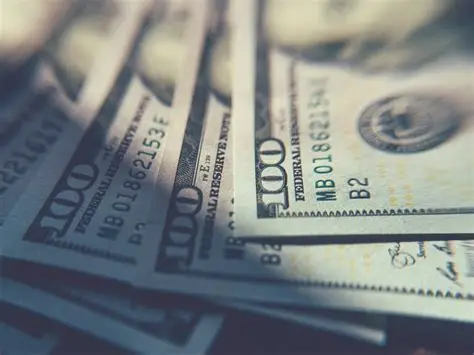Dollarization and the Nigerian Economy
Dollarization is a kind of currency substitution that uses the US dollar as the substitute currency. In general terms, the use of another country’s currency by a country in place of or alongside its own is termed currency substitution. This worrisome trend is fast becoming the norm in Nigeria.

Dollarization is usually a response to the loss of confidence by both investors and consumers in the domestic currency, the naira in this case. While investors would want to protect their assets, the consumers would naturally want to guard against inflation.
Based on policies of the CBN:
- The naira remains the only legal tender in Nigeria.
- All transactions in Nigeria must be priced in naira.
- Deposit money banks are prohibited from collecting foreign currencies for domestic transactions on behalf of customers.
- Foreigners and visitors are however exempted from the CBN policies above, as they are allowed to use their foreign currency denominated cards in outlets and also exchange their currency to naira at authorised outlets.
As much as currency substitution may be viewed as informal in Nigeria, there are some policies which appear contradictory. Some of which include:
- The licencing of BDCs (Bureau de Change) by the CBN.
- Domiciliary accounts held by Nigerians and foreign nationals, resident in Nigeria.
The CBN, in its statutory and coordinating role, frowns at this trend and requires all payments for goods and services to be done in naira.
The Effects of Currency Substitution
For every sovereign economy, currency substitution of any kind should not be encouraged due to the ripple negative effects on the nation’s economy, such as:
- Giving up some economic control to the country that issues the currency, the US in this case.
- Exchange rate volatility: Exchange rates adjusting to compensate for the inflation differential between the two countries.
- Monetary policy: Nigeria becomes subject to the monetary policy of the US.
- Loss of monetary autonomy: Nigeria loses control over its monetary policy.
- Other effects include: monetary instability, inflation, income distribution, loss of seigniorage, etc.
Restoring Confidence in the Naira
What must we do to build confidence in our naira again? Certainly, folding our hands as an economy and complaining will not yield the change we all desire.
- Policy Enforcement
The government, through the CBN, must begin to enforce its policies regarding the naira being the only acceptable legal tender in Nigeria and sanction defaulters accordingly. - Boosting Local Manufacturing
Processes that will enhance manufacturing of consumables like food, clothing, medicines, etc. must be encouraged by:- Providing constant power supply.
- Relaxing heavy duties and taxes on the importation of machinery enhancing these sectors.
This will reduce over-dependence on the importation of day-to-day basic needs.
- Patriotism and Local Patronage
Nigerians on their part must show patriotism by proudly patronising and using home-made goods. - Diversification of the Economy
The over-dependence on the oil sector for foreign earnings must be de-emphasized.
We must look into agriculture, culture & tourism, education, etc. as other avenues for earning same. - Eradication of Insecurity
Nigeria must be returned to the safe haven that it once was.
In conclusion, we as a people must all work together to stem this economic menace and return the naira to its original place of value and pride.
